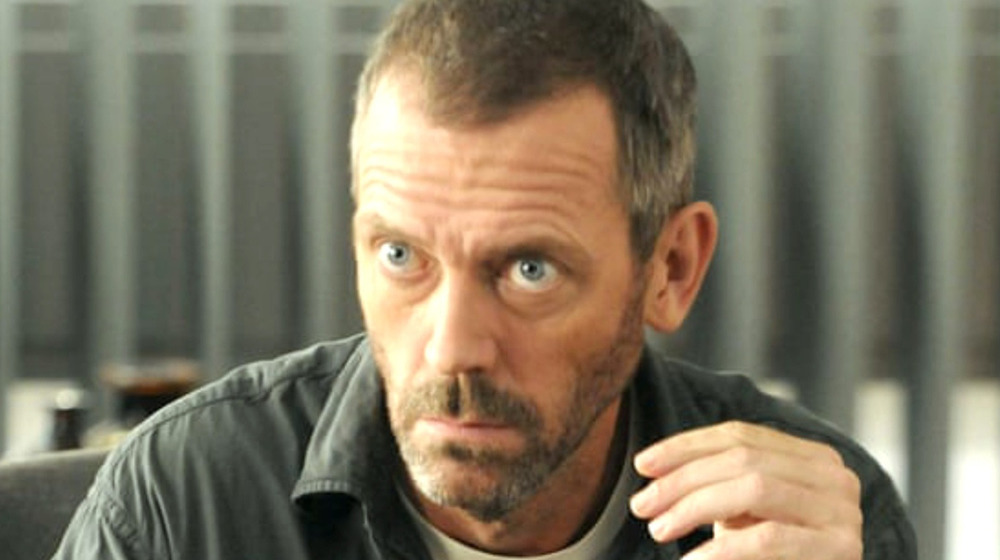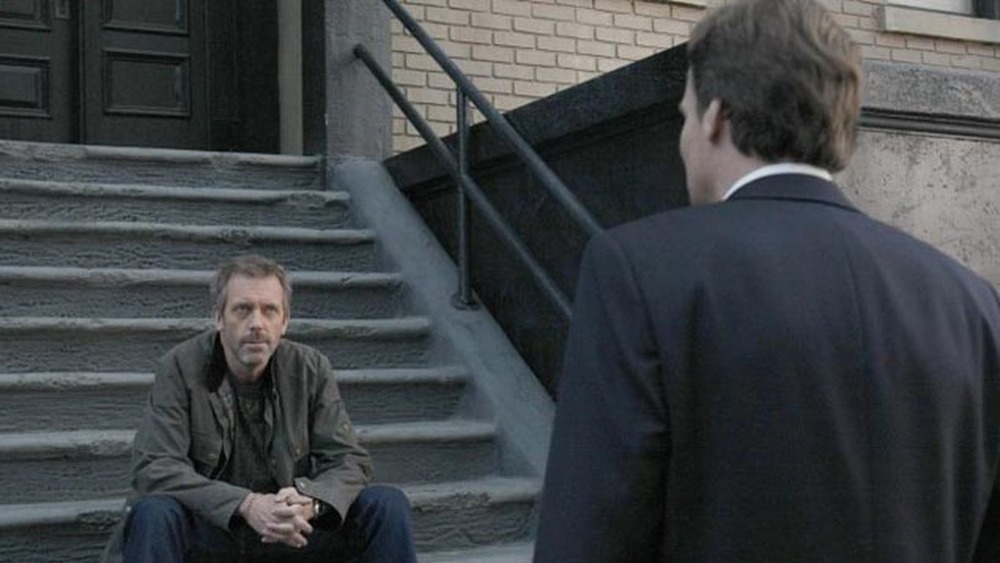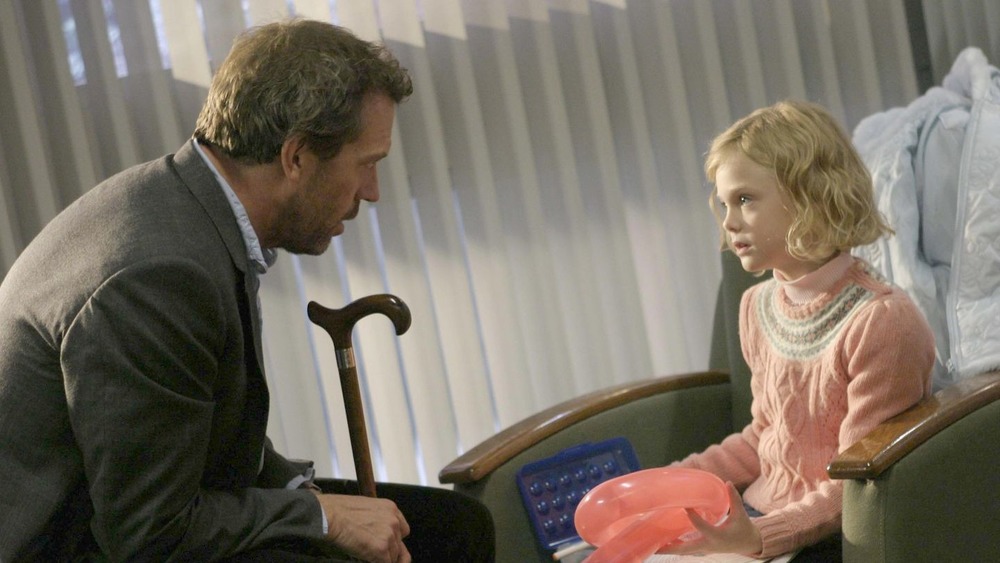The One Event That Led To The Creation Of Hugh Laurie's House
Houses don't spring out of the ground fully formed. They are built over time, numerous components and systems linking up to form the cohesive whole. Foundation, framework, roofing, plumbing ... you get the idea. To get the end product, you need all of them coming together, each adding something new.
House was a lot like that too, according to series creator David Shore. The titular cantankerous healer did not spring forth fully formed from the head of his creator, the Greek deity of obscure medical wisdom, nor did Dr. Gregory House emerge from one of actor Hugh Laurie's comedy double acts with Stephen Fry. Shore explained in an answer to an AMA question on Reddit, that Dr. House accumulated — little bit of this, little bit of that, along with "a lot of stewing."
Shore shouted out the most famous influence first: the world's most celebrated mystery solver, Sir Arthur Conan Doyle's iconic and oft-adapted detective Sherlock Holmes. Like Holmes, Shore wanted House to be single-minded in his focus on the problem itself, and almost apathetic about the person to whom said problem came attached. Logic rules the day for both characters, except perhaps when they're having trouble with their drug habits.
Which TV doctor helped inspire House?
But there's more to House than just Holmes. Shore also said he took inspiration from another unconventional TV doctor more than three decades old, the title character of the ABC drama Marcus Welby, M.D., played by actor Robert Young.
Like House, Welby was beloved by audiences; the series was even television's top-rated show in 1970. Also like House, Welby often clashed with his younger colleagues over his sometimes unorthodox methods, most notably Dr. Steve Kiley (James Brolin), who despite the motorcycle he rode into work was a bit more buttoned up than his senior partner. Unlike House, Welby was known for his kind bedside manner, however. Two out of three ain't bad.
Shore also admits he took the writer's prerogative to put a little bit of himself into his main character, though he didn't specify which parts. (Perhaps it was the stewing.) He also claims to have drawn some insight from what he called, "a good experience with a doctor that should have been a bad experience."
House was created to fill a hole
The last component, Shore explained, was a "bit of the networks wanting a medical show." Supply rises to meet demand.
Shore told Maclean's in 2007 that the idea for the series predated even its lead character. The idea of doing something that combined elements from two of the most reliable television staples –– police procedurals and medical dramas –– seemed a no-brainer even as the barest sketch of an idea. Executive producer Paul Attanasio reportedly got the idea from a regular column in The New York Times Magazine, and Shore was brought on to fill out the details around that framework, which led to the dredging up of all these influences and, eventually, the creation of the character of Gregory House and the medical world that orbits him. Shore even claims, in a parenthetical appended to his answer, that he "didn't really want to."
He probably doesn't regret it these days. His involvement has probably built him a house or two.


